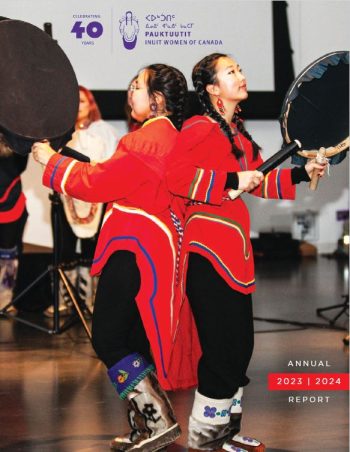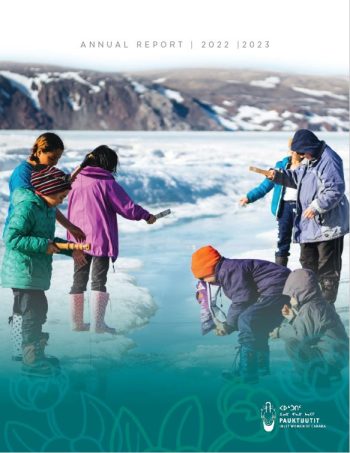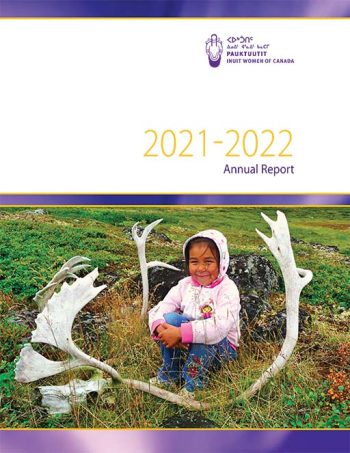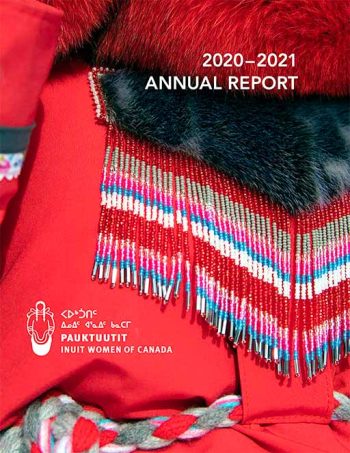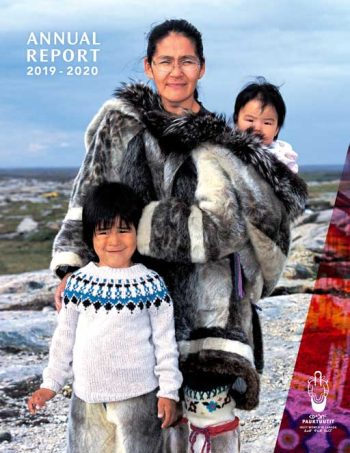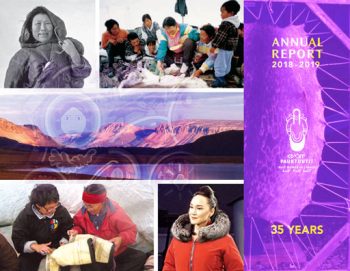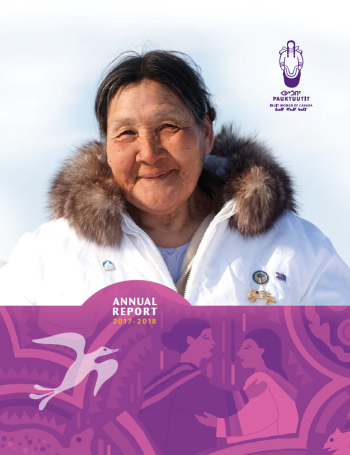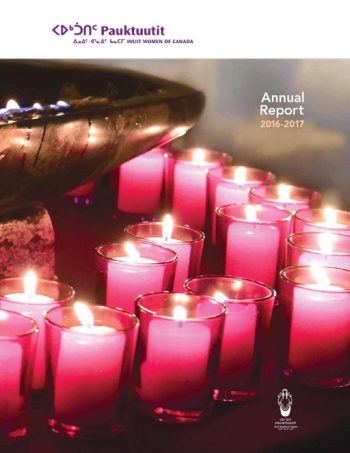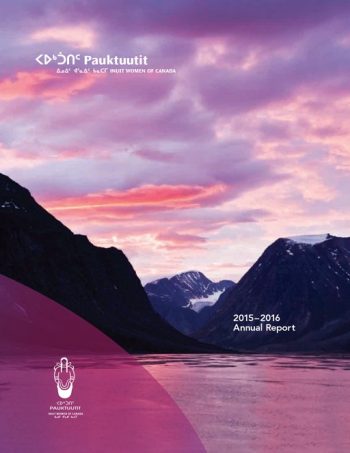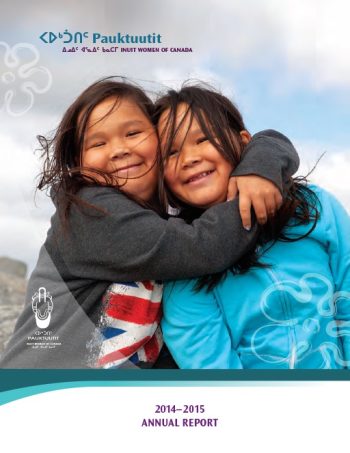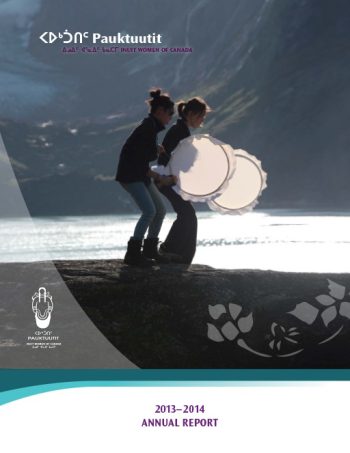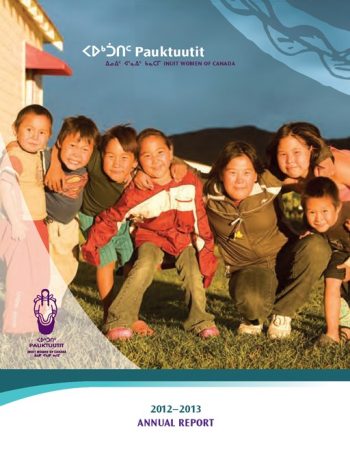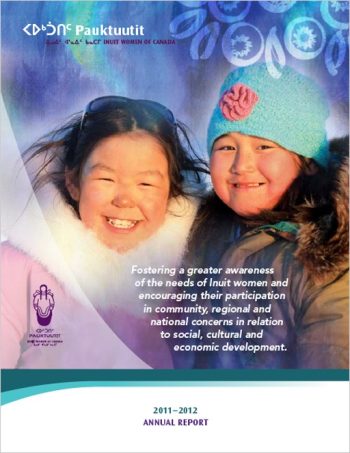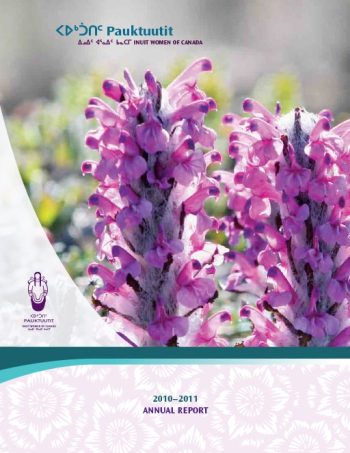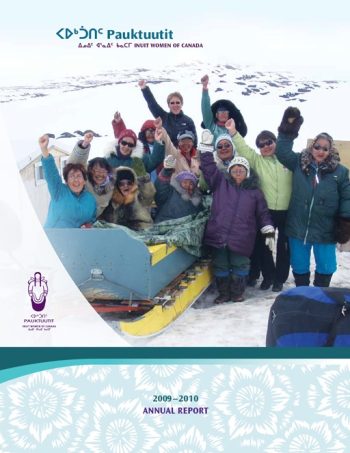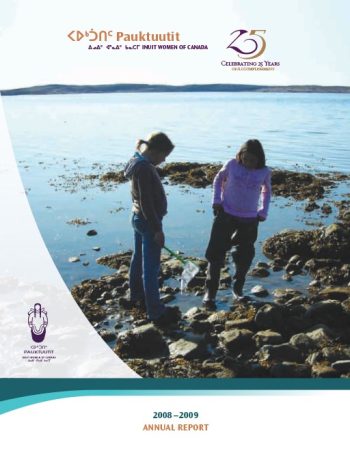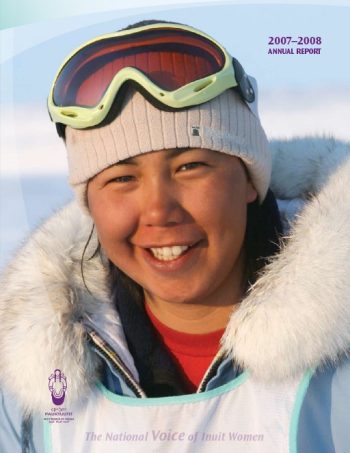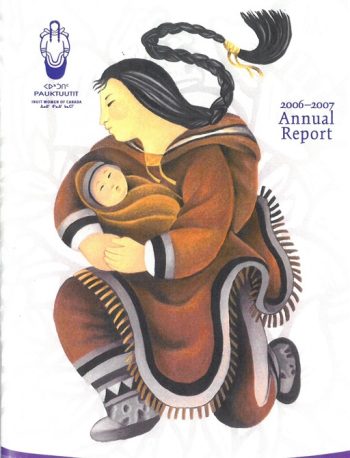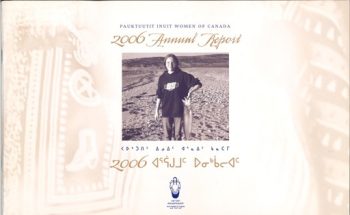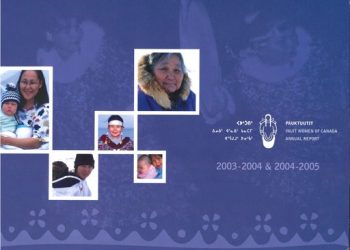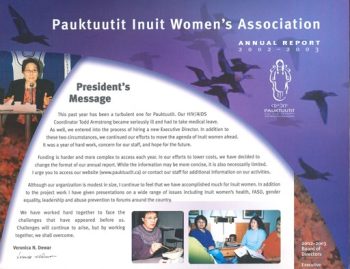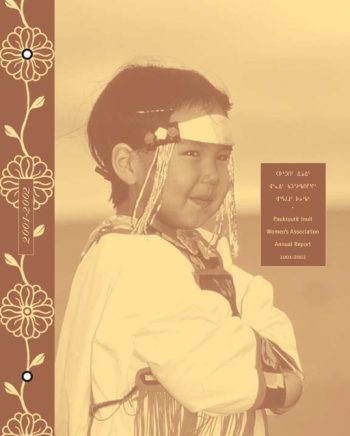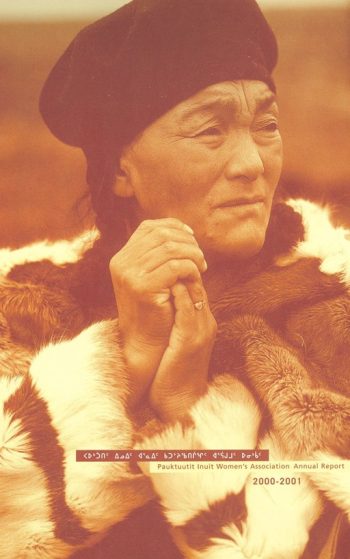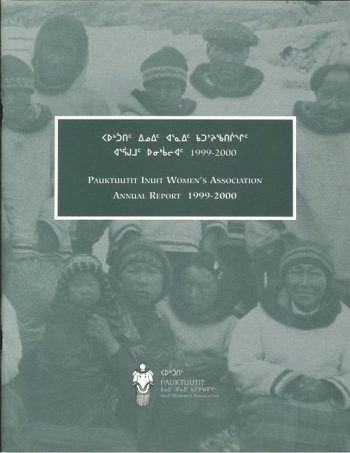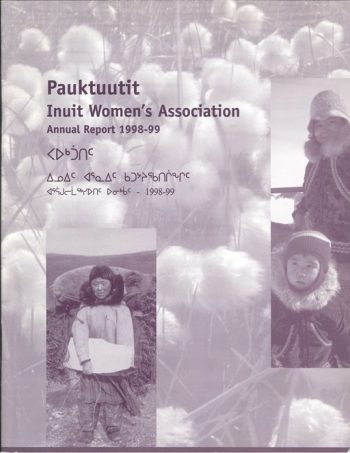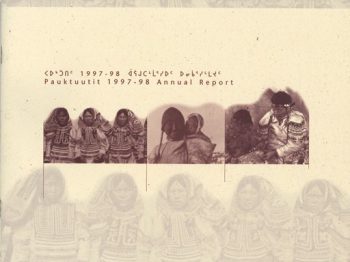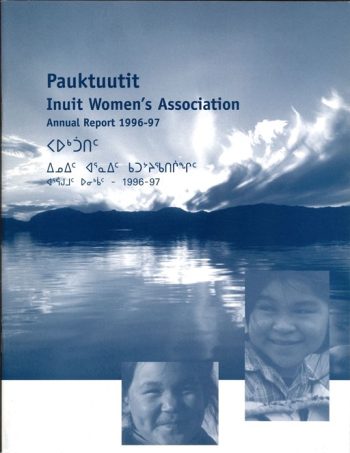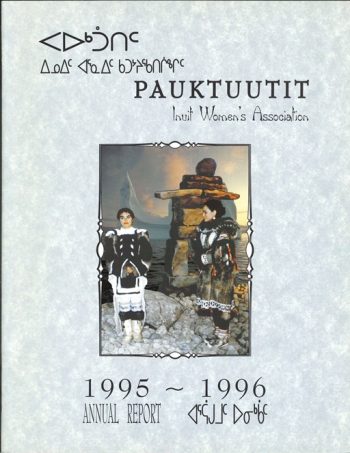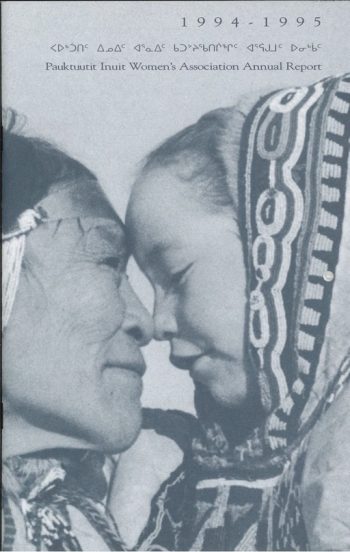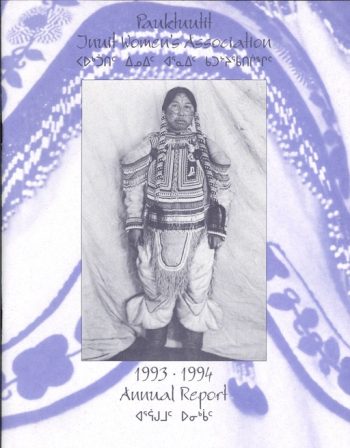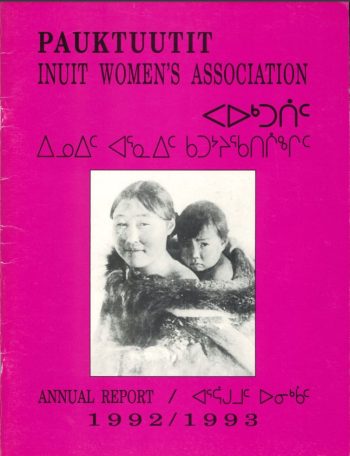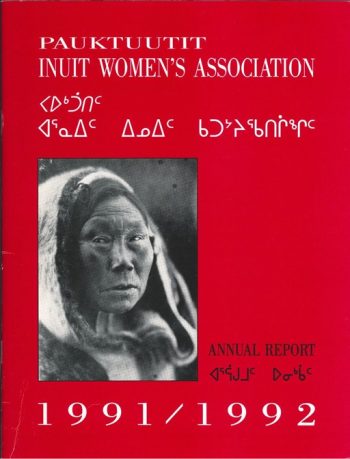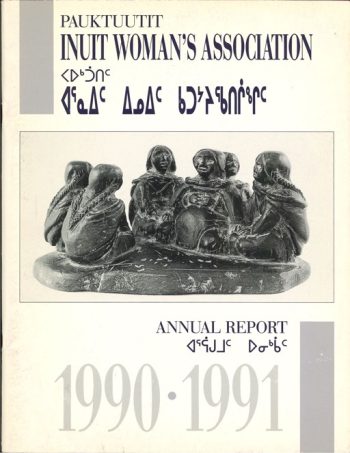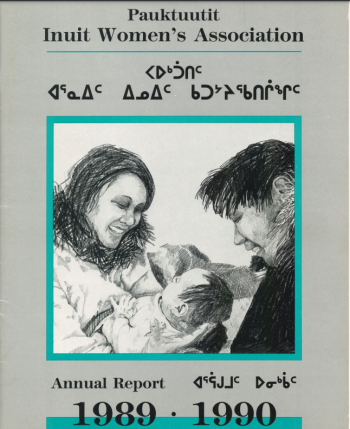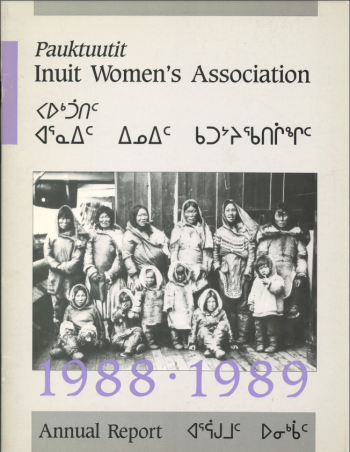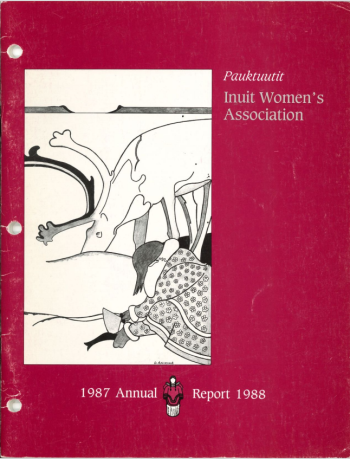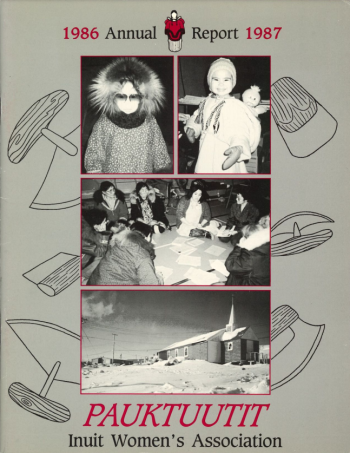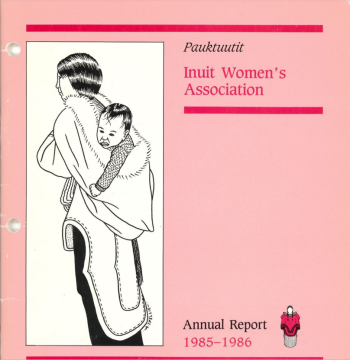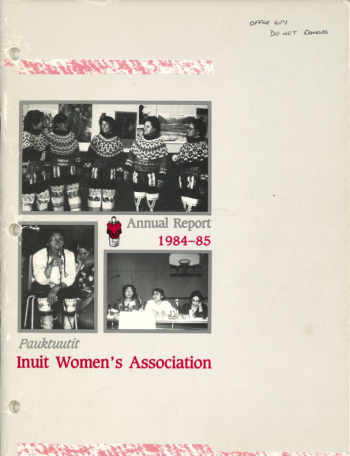Publications
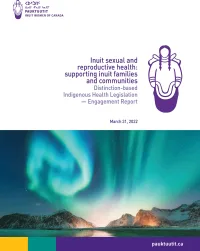
Inuit Sexual and Reproductive Health: Supporting Inuit Families and Communities.
From September 2021 to March 2022, Pauktuutit spoke with Inuit in Inuit Nunangat and in urban centers across Canada to hear what they would like to see the Federal Government include in Distinctions-based Indigenous Health Legislation.
We heard from health care workers, administrators, nurses, researchers, elders, and mothers about their experiences in the Canadian health care system. They told powerful stories that call for dramatic change to the current approach to Inuit sexual and reproductive health care.
This report presents our recommendations toward building an equitable foundation for Inuit sexual and reproductive health in Canada.
Year Published:2022
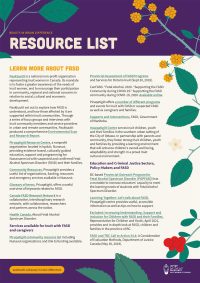
Resource List
Here you can find a list of resources and services that can help you learn about FASD, seek support for yourself or a loved one, and how you can make a difference for people with FASD. Have we missed an organization or resource? Let us know at fasdcop@pauktuutit.ca
https://pauktuutit.ca/wp-content/uploads/Pauk-ResourceList-V1.0-22-1.pdf
Year Published: 2022
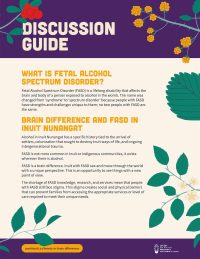
2-page Discussion Guide
Fetal Alcohol Spectrum Disorder (FASD) is a lifelong disability that affects the brain and body of a person exposed to alcohol in the womb. The name was changed from ‘syndrome’ to ‘spectrum disorder’ because people with FASD have strengths and challenges unique to them; no two people with FASD are the same.
https://pauktuutit.ca/wp-content/uploads/Pauk-DiscussionGuide-TWOPAGE-FINAL.pdf
Year Published: 2022
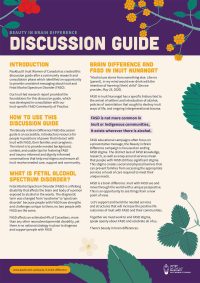
Beauty in Brain Difference Discussion Guide
The Beauty in Brain Difference FASD discussion guide is an accessible, introductory resource for people in positions of power that interact with Inuit with FASD, their families and caregivers. The intent is to provide needed background, context, and usable tips for fostering FASD and trauma-informed and dignity-informed conversations that help end stigma and ensure all
Inuit receive needed care, support and community.
Year Published: 2022
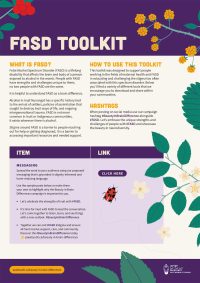
FASD Toolkit
This toolkit was designed to support people working in the fields of maternal health and FASD in educating and challenging the stigma too often associated with this spectrum disorder. Below you’ll find a variety of different tools that we encourage you to download and share within your communities.
This work is by and for Inuit. Our Inuit-led research report provided the foundations upon which we built this campaign. We developed this toolkit with the help of our Inuit-specific FASD Community of Practice so that you can join us in reducing the stigma associated with FASD among Inuit.
https://pauktuutit.ca/wp-content/uploads/Pauktuutit-DigitalToolkit-FINAL-1.pdf
Year Published: 2022
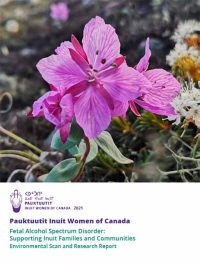
Environmental Scan and Research Report: FASD – Supporting Inuit Families and Communities
We would like to extend our sincere thanks and appreciation to the many people who contributed to this report.
Primarily, we would like to thank the community members, service providers, and key informants who took the time to share their knowledge and stories with us. This work could not have been completed without their participation.
This report was a collaborative effort of a research team that worked to design, implement and complete the work. This includes core team members from Pauktuutit and Firelight Research Inc. who worked together to design the research methods, travelled to Nunavik and the Inuvialuit Settlement Region to facilitate and carry out focus groups and interviews, conducted virtual interviews, and provided analysis and writing support. Crystal Martin-Lapenskie from Okpik Consulting aided in the virtual interviews and engagement and provided critical report support at a time when the pandemic caused the report to shift from an in-person to virtual setting.
Lastly, we would like to especially acknowledge all of the Inuit families across Inuit Nunangat and Canada who are impacted by FASD, those with suspected or confirmed FASD, those who are caregivers, and those providing essential services to others affected by FASD.
Year Published: 2021
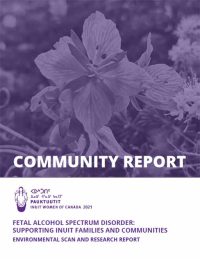
Community Report: FASD – Supporting Inuit Families and Communities
We would like to extend our sincere thanks and appreciation to the many people who contributed to this report.
Primarily, we would like to thank the community members, service providers, and key informants who took the time to share their knowledge and stories with us. This work could not have been completed without their participation.
This report was a collaborative effort of a research team that worked to design, implement and complete the work. This includes core team members from Pauktuutit and Firelight Research Inc. who worked together to design the research methods, travelled to Nunavik and the Inuvialuit Settlement Region to facilitate and carry out focus groups and interviews, conducted virtual interviews, and provided analysis and writing support. Crystal Martin-Lapenskie from Okpik Consulting aided in the virtual interviews and engagement and provided critical report support at a time when the pandemic caused the report to shift from an in-person to virtual setting.
Lastly, we would like to especially acknowledge all of the Inuit families across Inuit Nunangat and Canada who are impacted by FASD, those with suspected or confirmed FASD, those who are caregivers, and those providing essential services to others affected by FASD.
Year Published: 2021
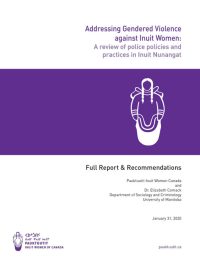
Addressing Gendered Violence against Inuit Women: A review of police policies and practices in Inuit Nunangat
We are grateful to the many individuals and organizations who had a role in bringing this project to completion.
First and foremost, we extend our most sincere gratitude to the 45 courageous Inuit women— from all four regions of Inuit Nunangat—who volunteered to participate in this study. Without their fortitude and determination to improve their safety and the safety of women in similar circumstances, this research would not have been possible. We remain truly humbled and tremendously appreciative that they chose to share their experiences with us.
As well, we are extremely grateful for the contributions of the 40 social service providers and police officers who took time from their demanding schedules and generously agreed to share their insights and knowledge about the successes and challenges encountered in responding to gendered violence against Inuit women in Inuit Nunangat.
This project also benefitted enormously from the input of the members of the Project Advisory Committee:
- Yvonne Niego, Deputy Minister, Family Services, Government of Nunavut
- Tracy Ann Evans-Rice, Status of Women Coordinator, Nunatsiavut Government
- Donna Rogers, Executive Director, Inuvik Transition House Society
- Lizzie Aloupa, Inuit Rights Officer, Makivik Corporation
- Heloise Chartrand, Family Violence and Sexual Abuse Agent, Nunavik Board of Health and Social Service
- Peggy Day, After-Care Coordinator, Inuvialuit Regional Corporation
We also acknowledge the indispensable support from the Community Research Liaisons in each of their respective regions who provided us with guidance on culturally appropriate strategies for community engagement and data collection. In addition, we are grateful to the elders, interpreters, and mental health support workers in each of the communities we visited who contributed their expertise, kindness, and compassion.
Samantha Michaels, Senior Research and Policy Advisor at Pauktuutit, was indispensable in her role as the point person for the project. In addition to conducting the interviews in Inuvialuit and Nunavik (as well as several more by telephone), Samantha did a marvellous job of ushering the project through its various stages (including proposal writing, ethics and research licensing processes, compiling the interim report to Public Safety Canada, connecting with Project Advisory Committee members, reaching out to potential participants by email, and assisting with the final report).
Christine Lund, Research and Policy Advisor at Pauktuutit, conducted the interviews in Nunavut and Nunatsiavut with sensitivity and care. Loren Bresch, a student in the Department of Sociology and Criminology at the University of Manitoba, ably took on the important task of conducting the literature review. And Kathy Jaworski did an admirable job (and in record time) of transcribing all of the interview recordings.
Funding for this project was provided by the Policy Development Contribution Program of Public Safety Canada, as well as in-kind contributions from Pauktuutit Inuit Women of Canada and the University of Manitoba.
https://pauktuutit.ca/wp-content/uploads/Pauktuutit_Addressing-Gendered-Violence_English_Full-Report-1.pdf
https://pauktuutit.ca/wp-content/uploads/Pauktuutit_Addressing-Gendered-Violence_Inuktut.pdf
Year Published 2020
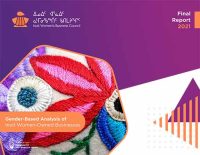
Gender-Based Analysis of Inuit Women-Owned Businesses Final Report 2021
ARKTIS Piusitippaa Inc. was retained to conduct an in-depth consultation process with Inuit women business owners and relevant stakeholders, such as regional economic development organizations and other federal, provincial and regional governmental and nongovernmental service providers, and to perform a Gender-Based Analysis Plus (GBA+) of the results arising from these interviews.
The results of this study are based on qualitative and quantitative survey data from interviews conducted with 30 Inuit Women Business Owners (IWBOs) and 15 Economic Development Officers (EDOs) and other Service Providers in Inuit Nunangat and southern urban centres during March and April, 2021.
https://pauktuutit.ca/wp-content/uploads/GBA_IWOB_Report_AUG-2021.pdf
Year Published 2021
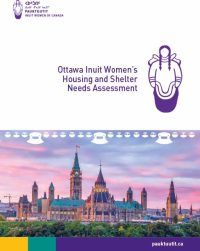
Ottawa Inuit Women’s Housing and Shelter Needs Assessment
This research was funded by Canada Mortgage and Housing Corporation (CMHC), however, the views expressed are the personal views of the author(s) and CMHC has no responsibility for them.
https://pauktuutit.ca/wp-content/uploads/Pauktuutit_Housing_English_03.pdf
https://pauktuutit.ca/wp-content/uploads/Pauktuutit_Housing_Inuktitut.pdf
Year Published: 2021
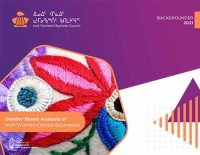
Gender-Based Analysis of Inuit Women-Owned Business Backgrounder
Pauktuutit Inuit Women of Canada (Pauktuutit) conducted a study interviewing 30 Inuit Women Business Owners (IWBO), as well as 15 Economic Development Officers (EDO) and other Service Providers, in Inuit Nunangat and southern urban centres during March and April of 2021.
The purpose of this consultation was to better understand the needs, priorities, challenges, and gaps for Inuit women’s economic development so that Pauktuutit can better support Inuit women and advocate on their behalf.
The interviews established business profiles and explored themes including how success is defined, how best practices are incorporated into business decisions, the influence of gender and culture on business, challenges and opportunities, and access to support and resources.
https://pauktuutit.ca/wp-content/uploads/GBA_IWOB_Backgrounder_NOV-2021.pdf
Year Published 2021
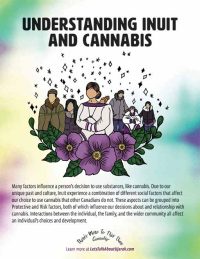
Understanding Inuit and Cannabis
Many factors influence Inuit decisions to use substances like cannabis, including our past experiences, current realities, and our culture. Learn more about these factors and how you can help open discussions around cannabis with your family or community.
https://pauktuutit.ca/wp-content/uploads/Inuit-and-CannabisEN.pdf
Year Published September 2021
